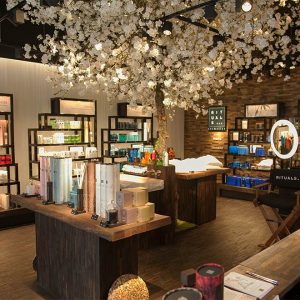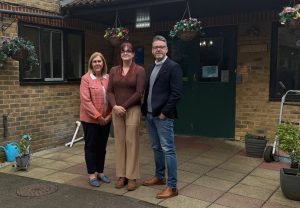Bruton Knowles: Accentuating Wolverhampton’s positives

By Ian Mercer, partner and head of development at property consultancy Bruton Knowles in Birmingham.
ACCORDING to a recent survey, Wolverhampton is officially home to the most miserable people in the UK, as well as being given the dubious title of the least prosperous place to live.
OK, so the city may have its problems (all cities do), but the most miserable and least prosperous place in the UK? Really? I’ve been to lots of cities in the UK and believe me there are much worse than Wolverhampton.
So what is it that’s making Wulfrunians so miserable?
The study by The Legatum Institute, an international public policy think-tank, compared the prosperity of 170 areas across Britain. Wolverhampton apparently came bottom for life satisfaction, with a rating of 7.07, making Wulfrunians the most miserable.
To add insult to injury, the already downbeat Wulfrunians came 86th out of 170 for GDP per capita, with the average person earning just £18,394 per year.
Sian Hansen, executive director of The Legatum Institute, said: “Residents of Wolverhampton are almost twice as likely to be unemployed, and are more likely to be claiming a working-age benefit.
“A lack of opportunity not only makes the area poorer but perhaps more importantly it makes people feel more unhappy.”
Unsurprisingly, the good people of Wolverhampton took umbrage with the results of the study, venting their anger and annoyance at the city once again being painted in a less than flattering light on various social media sites.
Wolverhampton MP Pat McFadden was quick to dismiss the findings of the report, saying: “I simply don’t accept this is one of the worst places in Britain to live.
“We have had a few of these reports now and the truth is the city does have big challenges but portraying it in this way is far too negative.”
The Legatum Institute’s survey isn’t the only one to have stuck the boot into Wolverhamtpon recently. Rightmove named it the least happy place to live in the West Midlands, while the Royal Society of Arts said the city is one of the most uncultured in the country.
And a survey by the Office for National Statistics revealed that the people are among the most dissatisfied in the UK.
But is Wolverhampton really as awful as these surveys suggest? I would strongly argue that actually it isn’t, and rather than focusing on the negatives, as the lyrics to the song go, the city needs to accentuate the positives.
Wolverhampton is a city undergoing significant physical change thanks to the proactive action taken by the city council to encourage and support investment and development that will help provide employment opportunities and deliver an economic boost for the city.
The multi-million pound Interchange regeneration scheme, for example, will see more than £100m of public and private investment in a state-of-the-art integrated transport hub, with a new bus and rail station, and extension of the Metro tramline, along with 300,000 sq ft of commercial office space, shops and bars.
Not only is Interchange greatly improving the travel experience for visitors and commuters to and from the city, it is providing much needed commercial space to encourage businesses back into the city centre; vital for generating income from business rates for the city council, which can then be ploughed back into other public services.
Then there is Westside, a major new city centre development opportunity being brought forward by the council. Plans for the mixed-use scheme could include retail and leisure space, residential accommodation, a revamped outdoor market, car parking and enhanced public realm.
As a key regeneration site, Westside will transform this area of the city into a vibrant quarter and could act as a catalyst for further investment and development in neighbouring areas.
Both of these schemes are part of the city council’s larger regeneration plans, with £868m of investment in the city centre either currently on site or in the pipeline.
Let’s also not forget the positive impact Jaguar Land Rover’s investment at i54 has had on the regional economy and the thousands of jobs that have been created as a result, not just at JLR, but at the associated supply chain businesses too.
The car maker has just announced £450m plans to double the size of its engine plant at i54, which will create hundreds of more jobs.
And then, of course, there’s the University of Wolverhampton, which has committed to investing £250m over the next five years to boost economic growth and job prospects across Wolverhampton and the Black Country.
Part of this investment will be at the Springfield Brewery site on Grimstone Street, which is undergoing a £60m redevelopment and will be home to the university’s school of architecture and the West Midlands University Technical College, created an additional 5,000 student places. This is a game changing initiative for the city.
So as you can see, despite what the surveys say, it’s not all doom and gloom in Wolverhampton, and instead of focusing on the results of surveys that are inconsequential in the grand scheme of things, let’s start shouting about all the positive things that are happening in the city.









